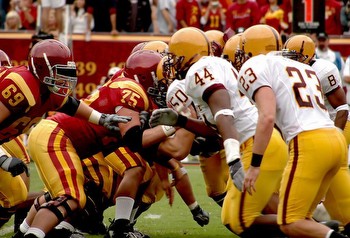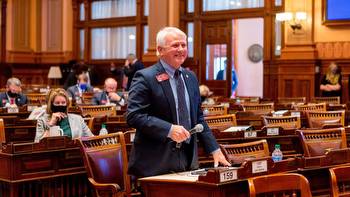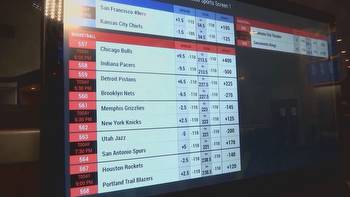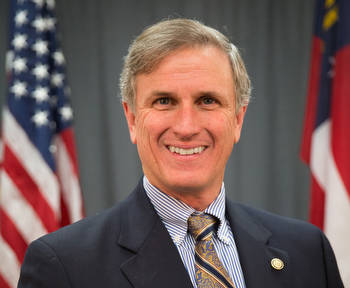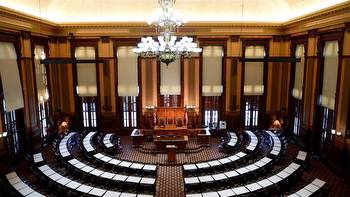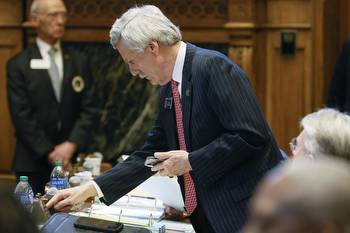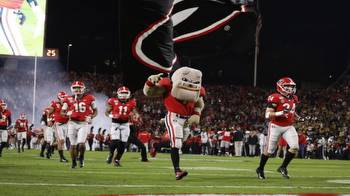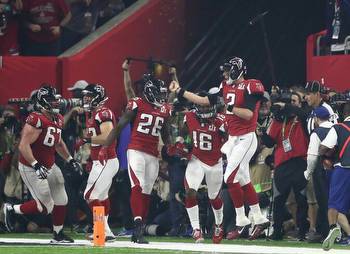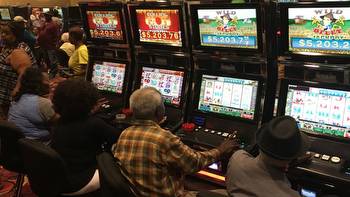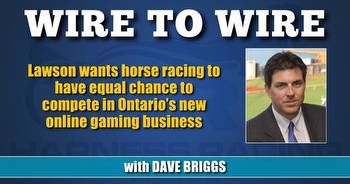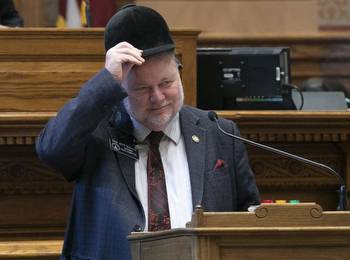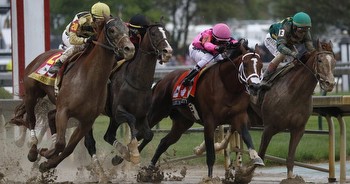Horse-racing enthusiasts try a new tack at the Capitol
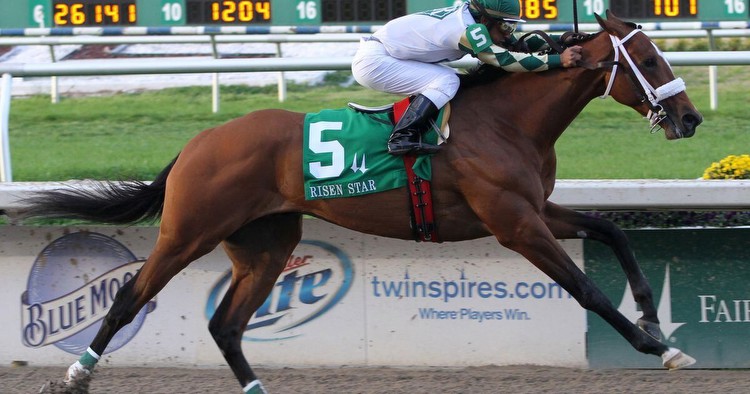
To say that sex has never been used to advance legislation in the state Capitol would be highly inaccurate.
Fortunately, it is a rare and closeted thing. But we have stumbled across a case in which copulation for political gain is widespread, systematic and – by all accounts – legal. Receipts are offered, accepted and filed away.
The Georgia Horse Racing Coalition is making a new and different push for pari-mutuel betting that starts with the financing of its lobbying effort: Studding opportunities, donated by stallion owners and sold through a broker.
“That will help fund some of our cause,” said Dean Reeves, president of GHRC. Reeves is also owner of Mucho Macho Man, the American thoroughbred winner of the 2013 Breeders’ Cup Classic and perhaps the fastest horse in Georgia history. A horse without a place to run in his owner’s state.
Another change: A new business model that swears off casino gambling, used by some racetracks in other states to ensure financial viability. Instead, it would introduce Internet gambling to Georgia.
Yet another new tact: A decision to test the Senate on the issue, as well as the House.
A new, rewritten measure is to be introduced this week by state Sen. Brandon Beach, R-Alpharetta. Legislation already filed by state Rep. Harry Geisinger, R-Roswell, a long-time champion of pari-mutuel wagering, will be revised to match it. Passage would require a two-thirds majority in both chambers and approval by voters in November 2016.
“It’s more than pari-mutuel wagering. It’s more about jobs and the equestrian industry than the track,” Beach said. A portion of the wagering proceeds would go to HOPE scholarship program.
While it has never been legal in modern state history, racetrack betting has been under a constitutional ban in Georgia since 1992 – part of the price Zell Miller paid for voter approval of the Georgia Lottery and the college scholarship program it still funds.
There are those who still point to a certain Birmingham, Ala., dog-track owner, eager to protect his market, for the pari-mutuel ban.
Year after year, horse lovers have besieged the Capitol to escape it. A Geisinger-backed bill has an occasionally escaped a House committee, but has never made it to the chamber floor for an up-or-down vote – often a sign high-level opposition.
In the past, both Gov. Nathan Deal and House Speaker David Ralston, R-Blue Ridge, have said they oppose an expansion of gambling in the state.
The GHRC argues that norms are changing, that their polling shows 72 percent of Georgians are in favor of horse-track betting. That a depopulated rural Georgia is more and more desperate for new jobs. That lawmakers in the Capitol are no longer saying, “Hell, no.”
“We’ve had numerous meetings with state leadership, and they have all basically told us that 2015 is the year for this,” said Carl Bouckaert, board chairman for GHRC. “It’s not just good for urban Atlanta, it’s good for rural Georgia, because it will create lots of jobs – new farms, whether they’re breeding farms or training facilities or hay farms.”
But those welcoming sounds that horse-track enthusiasts are hearing in private haven’t escaped the closed doors. We’ve heard nothing from the governor or the House speaker indicating a changed mind.
In the past, Ralston’s opposition has been enough to stop a horse-racing bill in its tracks. Among his objections: Whether they feature horses or dogs, tracks often require casinos to attract regular customers and stay afloat, Ralston argued.
Maybe some things have changed, but the word “casino” remains problematic in the state Capitol.
Perhaps for that reason, the horse-racing coalition has come up with a different model. A small grand-stand would be built in a pastoral setting. Tickets would be cheap – maybe $5. And you could bring in your own food.
”It’s not going to be some monstrosity, because really the numbers don’t work for that. If we got 15,000 people to the track on a Friday, I’d be thrilled,” Reeves said.
In a sense, the audience would serve as extras for the video. The real money, perhaps close to 90 percent, would come from betting conducted via the Internet – which is currently illegal in Georgia. “People in California and New York and Florida are going to pay to send our kids to school and fund the HOPE scholarship,” Reeves said.
You can sense the frustration of Reeves and his companions. It’s all right for a customer to walk up to a convenience-store counter and buy a state-sponsored lottery ticket that has a mega-million-to-one chance of paying off. Horse-racing offers better odds, and jobs besides.
“This is really like bingo. In bingo, all of the money goes into a pot. The church gets their share of the money. The rest goes back to the bingo players,” said Steve Crayne, the GHRC executive director. “In casino gambling, the more you lose, the more they win. That’s why they give you free drinks.”
Beach says he could start collecting signatures for his pari-mutuel proposal in the Senate next week, which should give all a clue as to whether Georgia is ready for a debate on horse-racing. The Alpharetta legislator said his goal is a historic first floor vote.
“I’ve talked to a lot of my constituents and I haven’t had one person say, ‘No, we don’t want this,’” Beach said.
The issue is worth some serious thought, if for no other reason than this: Dozens of stallions are out there, working very, very hard to give us the opportunity to have this discussion.

